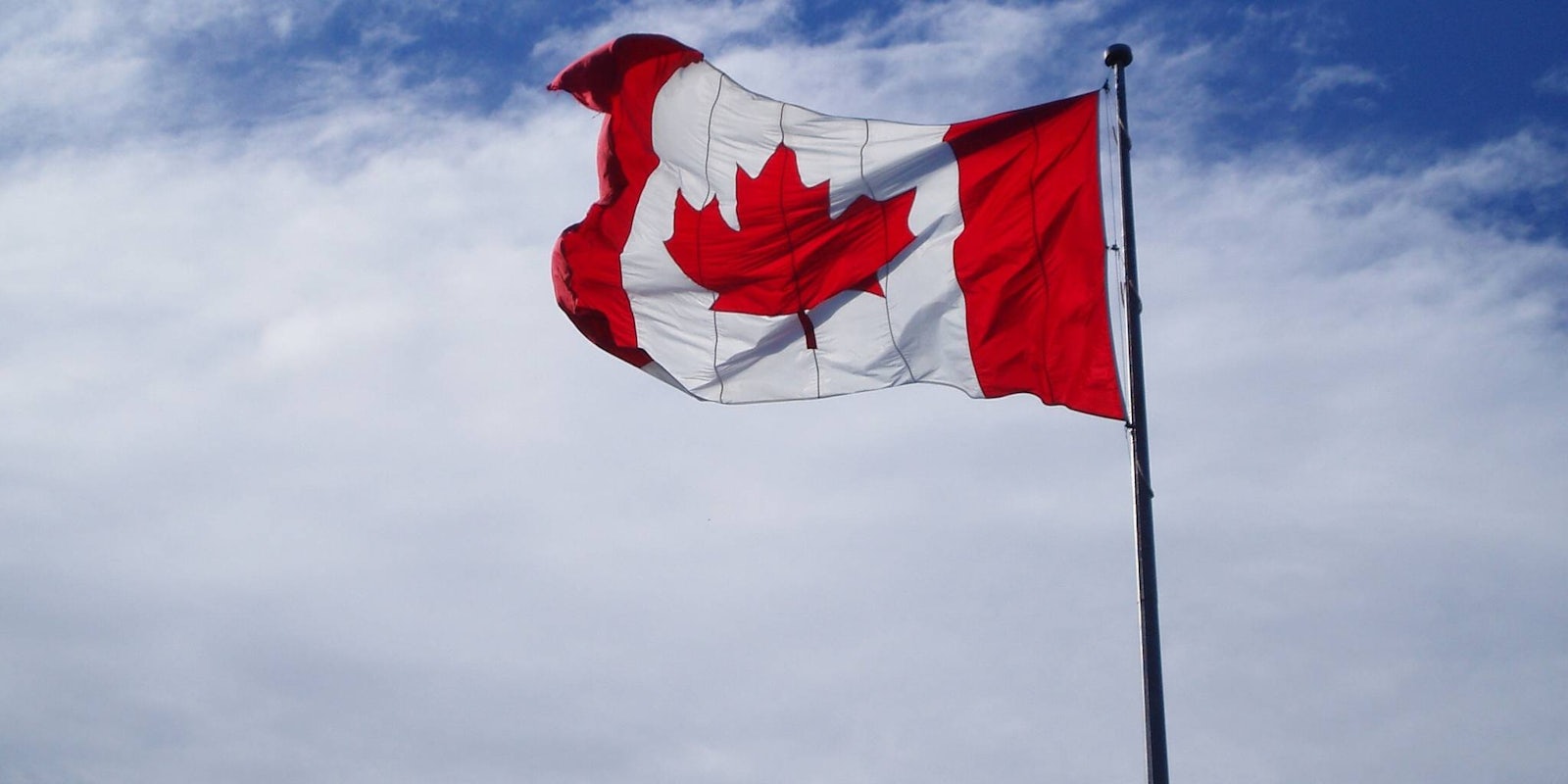If you weren’t already thinking of moving to Canada, you might want to now.
Canada’s telecommunications regulator on Wednesday ruled that all the nation’s residents are entitled to broadband Internet services at home and unlimited data plans on their phones. The nation will invest $750 million—much of it coming from the private sector—to expand broadband across rural and remote areas of Canada over the next five years.
But it won’t be easy. Nearly 1 million people living in Canada’s rural areas don’t have broadband internet access, according to the Canadian Internet Registration Authority. Furthermore, a total of 95 percent of Canadians in the highest income quartile are connected to the internet, yet only 62 percent in the lowest income quartile have internet access.
“These goals are ambitious, they will not be easy to achieve and they will cost money. But we have no choice,” Canada Radio-television and Telecommunications Commission Chairman Jean-Pierre Blais said at a news conference, according to the Financial Post.
Rural Canadians speak of living in “internet blackout zones” and spending hundreds of dollars on cell-signal boosters. One Ottawa Valley resident told the CBC that he doesn’t believe his kids know that Netflix exists.
If all goes as planned, rural Canadians will be hooked up to faster internet speeds than many of their American counterparts who live in urban areas. Canada’s ruling ensures that Canadians will be hooked up to twice the speeds—at a minimum—of what is considered high-speed internet in the United States. It would set minimum download speeds of 50 Mbps and upload speeds of 10 Mbps per second. Currently, the Federal Communications Commission’s definition of high-speed internet is 25 Mbps for download speeds and 3 Mbps for upload speeds.
The FCC estimates that 39 percent of rural Americans—a total of 23 million people—don’t have access to 25 Mbps/3 Mbps service. The agency has yet to set a benchmark for mobile service.
Why can’t rural Americans get access to broadband internet? It isn’t from lack of trying on the FCC’s part.
The FCC, under the Obama administration’s plan for universal broadband, has met challenges from Republican-controlled states and by telecommunication companies. Many states have laws that prevent municipalities from operating their own broadband internet or making that service available to consumers, according to the Education Commission of the States.
Cities in North Carolina and Tennessee sought to expand broadband access beyond the current restriction set by both states. The FCC in 2015 voted to allow those cities to pre-empt those laws. But a federal appeals court in August blocked the FCC’s decision, according to Reuters. This sets a legal precedent that does not bode well for community broadband expansion in the future.
Rural America is unlikely to see Obama-era FCC policies like universal broadband coming their way soon, thanks to the incoming Donald Trump administration. Trump’s FCC transition team consist of Jeff Eisenach and Mark Jamison, both economists at American Enterprise Institute. According to the Huffington Post, Eisenach has consulted for Verizon to help the company fight rate regulation, net neutrality, and quality of service standards.
Jamison wrote in an op-ed in Tech Policy Daily that Hillary Clinton’s plan to expand broadband internet access would “waste resources and make our economy worse for the experience”.
Jamison–who has said that the U.S. no longer needs an FCC— argue that poor Americans don’t need broadband internet access:
“Some low-income families move often or otherwise have mobile lifestyles, making home broadband impractical. Demographics and primary uses of telecommunications also affect demand. Perhaps some people simply are not interested in spending their time watching Netflix and shopping online.”


